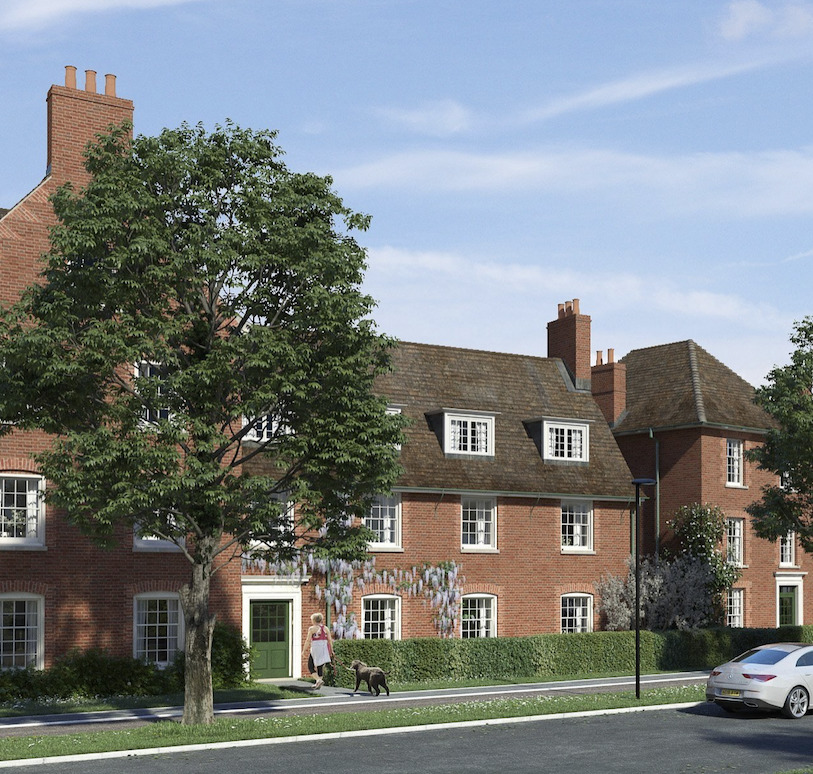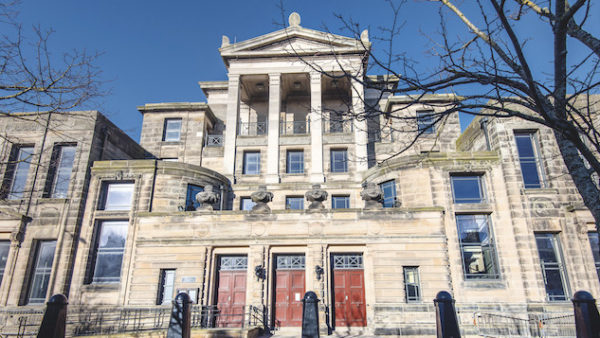Daniel Blackwell, director of London Architectural Hardware, says that the government focus on traditional aesthetics could benefit ironmongers who specialise in period styles but asks if on the other hand it could stifle creativity and innovation in new designs.

Building beautifully. Building beautifully. Building beautifully.
It’s the mantra of the Conservative government’s thinking today when it comes to homes. Although it won’t be lost on some that it used to be "build, build, build!"
So that you’re following, building new homes isn’t enough anymore – they now have to tick that subjective box of being ‘beautiful.’
Today’s Housing Secretary, Michael Gove, has even threatened to call in buildings that aren’t beautiful – and on occasion has followed up with such threats.
So what does Michael Gove mean when he says that homes must be built beautifully?
Look no further than his own muse, Nicholas Boys Smith, founder of the social enterprise Create Streets, which yearns for an older traditional aesthetic in new buildings and who chairs the government’s Office for Place.
Visit the Twitter/X page of Boys Smith, and you’ll see what the government means by building beautiful. To name but a few:
- Majestic Georgian townhouses
- Victorian townhouses decorated by tree-lined streets
- Renaissance-era architecture.
These types of buildings are defined, to some extent, by small and intricate details and patterns in their brickwork and ironmongery.
Love it or hate it – these types of homes are what the housebuilding industry can expect when it comes to government standards.
Should Michael Gove succeed in delivering housing and planning reforms, expect the Office for Place, based in Stoke-on-Trent, to lead design improvements and support local residents in delivering high-quality local plans.

The blueprint for the vision of Boys Smith and Gove can be seen in neighbourhoods, including Poundbury by the Duchy of Cornwall and the ambitious Welborne Garden Village planned by Fareham Borough Council.
They feature an abundance of traditional qualities:
- Traditional street layouts inspired by historic towns and villages
- Traditional landscaping – think village greens, front lawns, and tree-lined streets
- Traditional materials, sourced locally when possible
- Traditional facades – in other words, Victorian, Georgian, and styles reminiscent of the earlier 20th century.
So with the new trend of revisiting the old, what can the ironmongery industry expect?
Well, for those who have ever worked on the restoration of historic buildings, you’ll get a good idea.
Such developments will need skilled ironmongers who specialise in the intricate finer details.
Think of beautifully carved old-style front door handles and Victorian ringed door knockers. At Poundbury, you can even find traditional iron spear railings in front of homes.
Period style ushers in older designs
On the topic of doors, Create Streets in a previous Twitter post declared, whilst attacking a modern doorway: ‘Doors should be proud, boldly proclaiming “We are here” and “You are welcome”.’
Such details may be especially important to the dreams of Boys Smith and Gove as they play a significant role in a building’s façade and its relationship to the street – a key theme for the government’s new but old building revolution.
So, should the government get its way when it comes to housing to define the 20th century – the ironmongers, many of whom are rightfully thinking of technology and innovations at the present moment, can expect to go back to older designs.
Even if Labour should win the next general election, there is no overt sign that it will change course when it comes to the ‘building beautiful’ agenda, meaning it may be here to stay.
For designers, that could potentially stifle creativity and innovation in new designs.
But for those who specialise in the old-style ironmongery of the past, they can expect to thrive.








